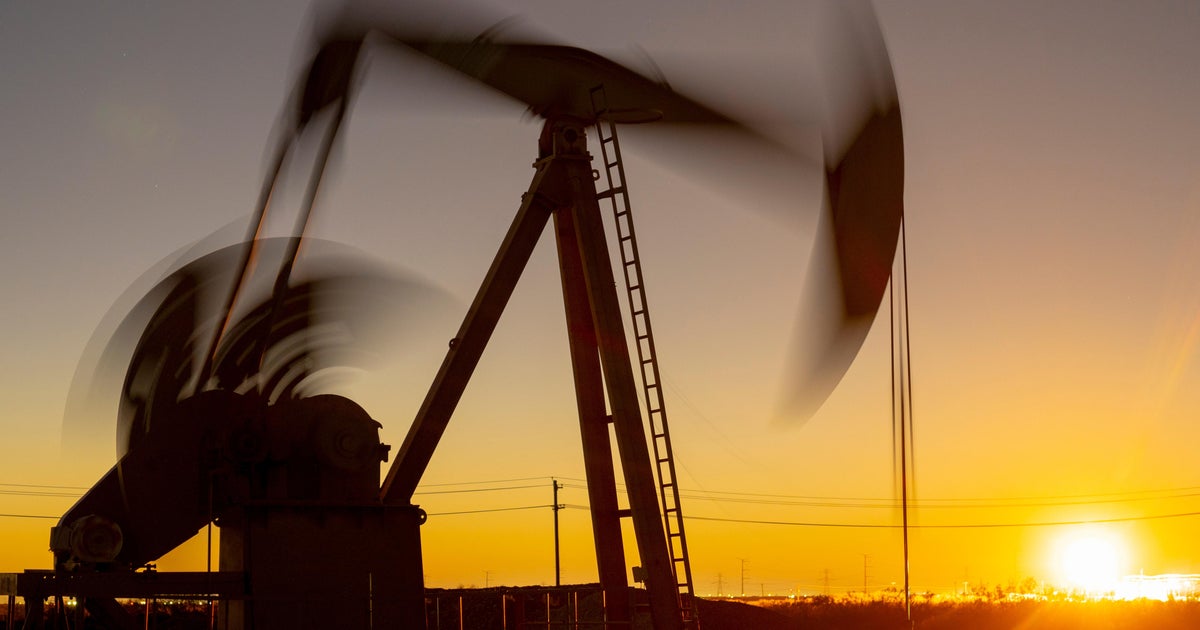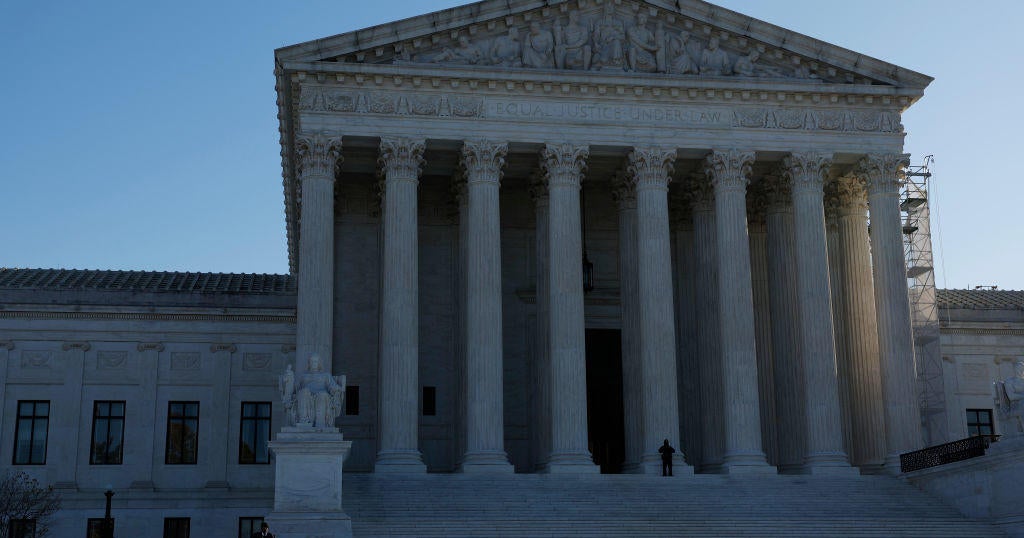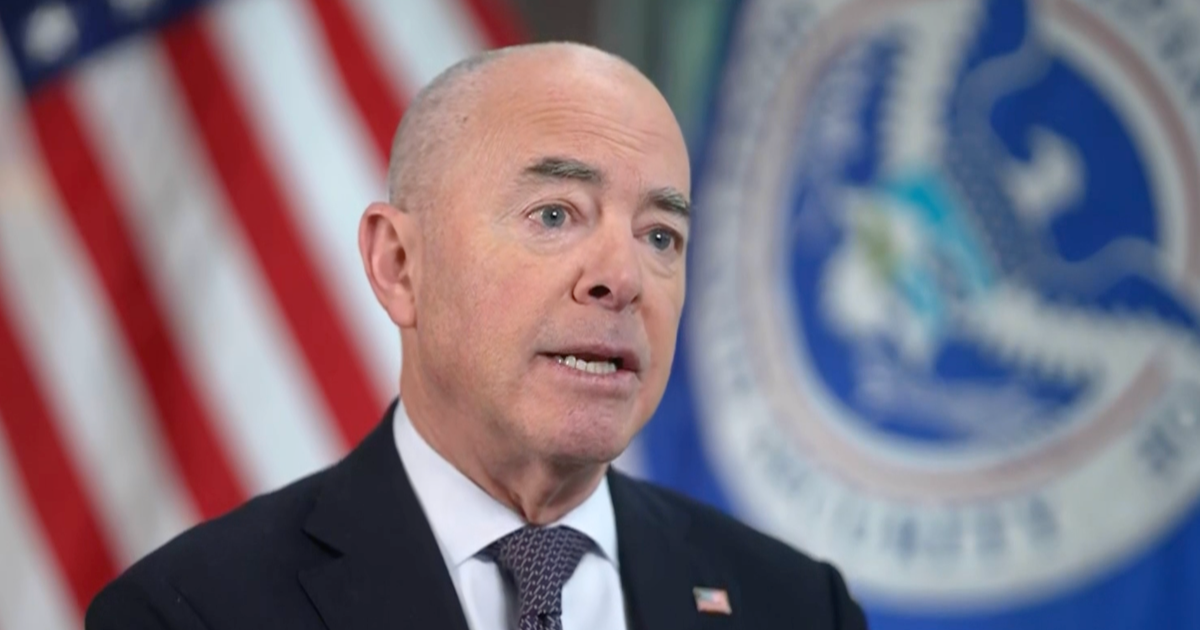Supreme Court allows EPA to enforce methane rule for oil and gas facilities for now
Washington — The Supreme Court on Friday allowed the Biden administration to continue enforcing, for the time being, a new rule that aims to curb emissions of the greenhouse gas methane from new and existing oil and gas facilities.
The high court rejected a request from nearly half of the states and industry groups to put the measure from the Environmental Protection Agency on hold while proceedings over its legality continue. There were no noted dissents.
The measure is among a suite of initiatives from the Biden administration that aims to tackle climate change. Two other recent rules from the EPA are also facing court challenges, including its stringent restrictions on greenhouse gas emissions from coal-fired power plants.
The EPA's methane rule
The rule at issue in this case was finalized in December and takes direct aim at the oil and gas industry, which the EPA said is the "largest industrial source of methane pollution" in the country. The measure, which took effect in May, sets emissions standards and guidelines for methane and smog-forming volatile organic compounds, or VOCs, from new and existing oil and gas wells.
In addition to the performance standards to reduce air pollution from new facilities, the measure lays out procedures for states that will submit to the EPA implementation plans for existing wells to curtail methane emissions.
The EPA's methane-emission guidelines include a "model rule" that includes "presumptive standards for designated facilities." Each state is required to come up with a plan that is "at least as protective as the model rule," or comply with a separate regulation involving the variance process, according to the EPA.
Known as a "super pollutant," methane is more powerful than carbon dioxide and is responsible for roughly one-third of the planet-warming that is attributable to greenhouse gases, according to the EPA. The Biden administration has argued that quick, sharp cuts in methane can create near-immediate benefits and are crucial to slowing the rate of global warming.
But not long after the rule was published, 23 states and the Arizona legislature, as well as oil and gas companies and industry groups, challenged the measure in the federal appeals court in Washington, D.C., and asked it to halt its enforcement during litigation.
A three-judge panel of judges on the U.S. Court of Appeals for the District of Columbia Circuit unanimously denied the requests to pause the rule, finding that the challengers failed to satisfy the requirements for a stay during its review.
The states and industry associations then sought emergency relief from the Supreme Court, arguing that the rule violates the Clean Air Act.
The gas companies argued that the rule is an "authoritarian national command" from the EPA that usurps states' authority to set performance standards for methane and VOCs for oil and gas facilities. The states, meanwhile, accused the EPA of attempting to use a provision of the Clean Air Act to unlawfully attack the oil and gas industry.
The states said that by requiring the "presumptive standards," the rule will decrease oil and gas production, forcing many wells to close.
But the Biden administration told the Supreme Court in a filing that its methane-emission guidelines for state regulation of existing wells are lawful and fully comport with the Clean Air Act. The "presumptive standards" included in the emissions guidelines do not keep states from adopting their own approaches, but rather give them a model to rely on, administration officials said.
Solicitor General Elizabeth Prelogar, who represents the government before the Supreme Court, said the states have misunderstood what is required in the plan, and warned that any postponement of the rule would significantly harm the government and the public.
"Climate change is the nation's most pressing environmental challenge; the primary cause of climate change is the buildup of greenhouse gases in the atmosphere; methane is a highly potent greenhouse gas that drives climate change and additionally results in ground-level ozone; and the oil and gas industry is the largest industrial emitter of methane in the United States," the Justice Department argued in a Supreme Court filing.
The Biden administration warned that pausing the rule would delay the "substantial" methane-emission reductions that the EPA is seeking, harming public health.
The Supreme Court's order comes after it issued a series of recent rulings that have limited efforts by the EPA to keep the nation's air and water clean. In June, the high court divided 5-4 to block the agency's so-called "good neighbor" plan, which aims to curb air pollution and address harmful smog.
Last year, it curbed the EPA's authority to regulate certain wetlands under the Clean Water Act. In June 2022, the high court found Congress didn't grant the EPA the authority under the Clean Air Act to set emissions caps based on the generation-shifting approach taken through the Clean Power Plan rule.



